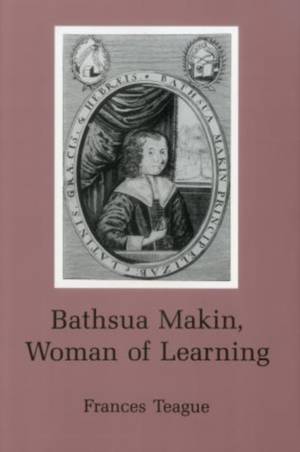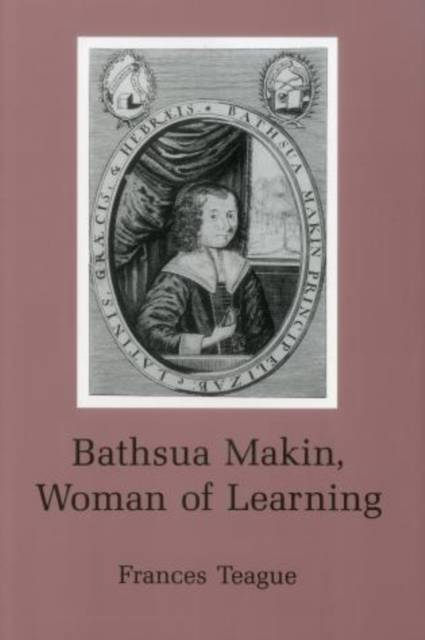
En raison d'une grêve chez bpost, votre commande pourrait être retardée. Vous avez besoin d’un livre rapidement ? Nos magasins vous accueillent à bras ouverts !
- Retrait gratuit dans votre magasin Club
- 7.000.000 titres dans notre catalogue
- Payer en toute sécurité
- Toujours un magasin près de chez vous
En raison de la grêve chez bpost, votre commande pourrait être retardée. Vous avez besoin d’un livre rapidement ? Nos magasins vous accueillent à bras ouverts !
- Retrait gratuit dans votre magasin Club
- 7.000.0000 titres dans notre catalogue
- Payer en toute sécurité
- Toujours un magasin près de chez vous
Description
Bathsua Reginald Makin is an important figure in women's history. A child prodigy, she was thoroughly educated in classical and modern languages at a time when most women were illiterate. She was a middle-class Englishwoman who published her own poetry, established her own school, and wrote in defense of women's right to learning. Not only did she publish but she was also "a woman of great acquaintance" who sometimes acted on her own to earn a living. She enjoyed friendships with prominent Protestant families like those of Sir Simonds D'Ewes and the Raleghs; with the leaders the English Comenian movement, like John Milton's friend Samuel Hartlib or her own brother-in-law, John Pell; and with other learned women like Anna Maria Van Schurman and Lucy, Countess of Huntingdon. She lived in poverty, yet taught a countess and a princess. Historians of linguistics, education, and literature discuss her life and works. Unfortunately, the most basic facts of her life were not known until the 1960s: scholars thought she had grown up as an orphan, whereas she was the daughter of a loving schoolmaster; they thought she had written a pamphlet about debtor's prison that is, in fact, someone else's work; they did not realize that she had published her first book, an extraordinary collection of poetry in many languages, when she was sixteen years old. This biography gathers what is known about Makin, offers new materials from archival research, and interprets the events of Makin's life within the context of women's history in seventeenth-century England. The facts about Bathsua Makin offer a glimpse both into the life of one extraordinary woman and into the problems that learned women faced in this period. Knowing about her life also helps to explain both what the works that she published mean and how she managed to achieve her reputation as England's most learned woman.
Spécifications
Parties prenantes
- Auteur(s) :
- Editeur:
Contenu
- Nombre de pages :
- 207
- Langue:
- Anglais
Caractéristiques
- EAN:
- 9781611480900
- Date de parution :
- 01-02-98
- Format:
- Livre relié
- Format numérique:
- Genaaid
- Dimensions :
- 168 mm x 243 mm
- Poids :
- 476 g

Les avis
Nous publions uniquement les avis qui respectent les conditions requises. Consultez nos conditions pour les avis.






